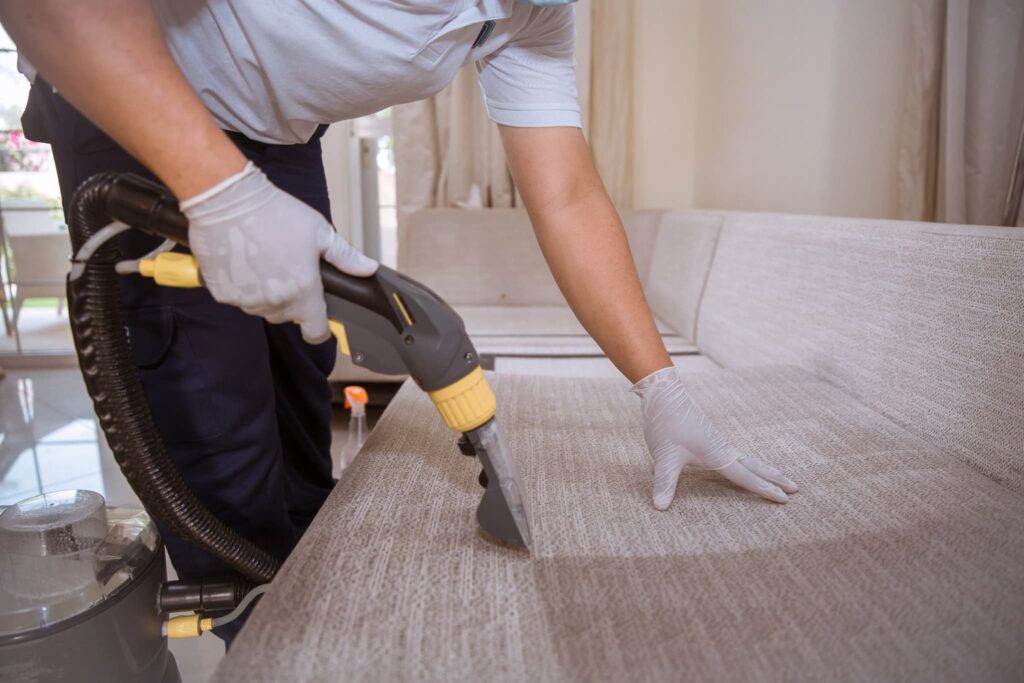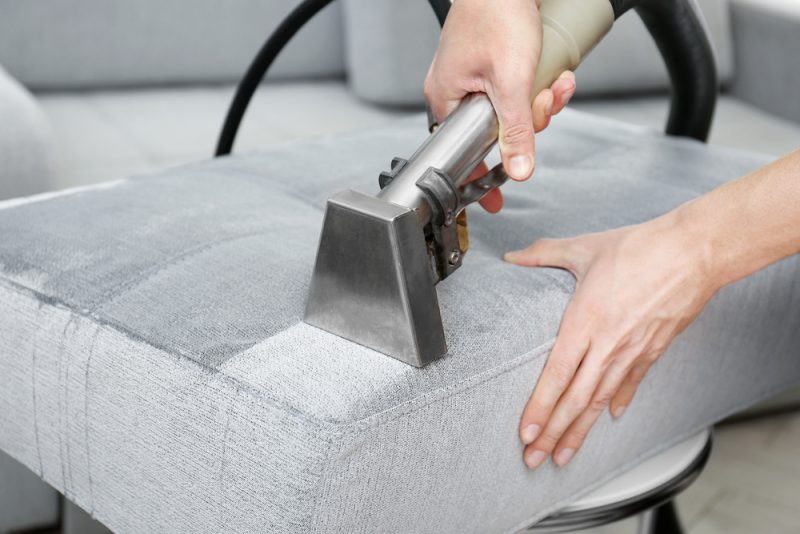Revitalize and Refresh: Professional Sofa Cleaning Services. Sofa cleaning is an essential aspect of maintaining a clean and healthy living environment. Over time, sofas can accumulate dust, dirt, pet dander, and even stains, leading to a less hygienic and aesthetically pleasing space. Regular sofa cleaning not only removes these contaminants but also helps prevent allergen buildup, ensuring a healthier atmosphere for you and your family. Promptly addressing spills and stains is crucial to prevent them from setting and becoming more challenging to remove. Deep cleaning, whether done professionally or with homemade solutions, should be considered at least every 1-2 years or more frequently if your sofa experiences heavy use or is situated in a high-traffic area. A clean sofa not only looks more attractive but also helps prolong its lifespan, making it a worthwhile investment in the long run.

Sofa Cleaning Solutions:
Cleaning your sofa with homemade solutions can be a cost-effective and eco-friendly way to maintain its appearance and cleanliness. Here are some homemade sofa cleaning solutions you can try:
Baking Soda and Vacuum:
- Sprinkle a generous amount of baking soda over the sofa’s surface.
- Let it sit for 15-20 minutes to absorb odors and help lift stains.
- Use a vacuum cleaner with an upholstery attachment to remove the baking soda.
Homemade Upholstery Cleaner:
- Mix 1 cup of warm water with 1/4 cup of dish soap (mild, non-bleach) and 1/4 cup of white vinegar.
- Dip a clean cloth or sponge into the mixture and wring it out so it’s damp but not soaking.
- Gently blot or scrub the stained or soiled areas on the sofa.
- Rinse the cloth with clean water and wipe off any soapy residue.
- Allow the sofa to air dry.
Lemon Juice and Cream of Tartar:
- Make a paste by mixing lemon juice and cream of tartar to form a thick consistency.
- Apply the paste to stains and gently scrub with a soft cloth or sponge.
- Wipe off the paste with a clean, damp cloth.
- Lemon juice can have a bleaching effect, so do a spot test in an inconspicuous area first.
Vinegar and Water:
- Mix equal parts of white vinegar and water in a spray bottle.
- Lightly mist the sofa’s surface, paying special attention to stains and odors.
- Blot the area with a clean cloth to remove excess moisture and stains.
- Allow the sofa to air dry.
Cornstarch for Grease Stains:
- If you have grease stains on your sofa, sprinkle cornstarch over the affected area.
- Let it sit for about 15 minutes to absorb the grease.
- Brush away the cornstarch, and if needed, follow up with a damp cloth to clean the residue.
Remember to check your sofa’s care instructions and do a spot test in an inconspicuous area to ensure that the homemade cleaning solution doesn’t damage the fabric. Additionally, always blot and avoid rubbing stains to prevent them from spreading or damaging the upholstery. If you’re unsure or have delicate or valuable upholstery, consider consulting a professional upholstery cleaner for advice or services.

Is Sofa Cleaning Necessary?
Sofa cleaning is necessary for several reasons, and the frequency of cleaning depends on how often the sofa is used, the type of sofa, and the environment in which it’s placed. Here are some reasons why sofa cleaning is essential:
- Maintaining Hygiene: Sofas can accumulate dust, dirt, pet dander, and food crumbs over time. Cleaning your sofa helps in removing these contaminants, promoting a healthier living environment.
- Allergen Removal: Allergens like dust mites and pet dander can accumulate in sofa upholstery, potentially causing allergic reactions or respiratory issues. Regular cleaning helps to reduce allergen levels.
- Stain Prevention: Prompt cleaning can prevent stains from setting in. This is especially important for light-colored sofas or sofas located in high-traffic areas.
- Odor Control: Sofas can absorb odors from various sources, including pets, food, and spills. Cleaning can help eliminate unpleasant odors and keep your living space smelling fresh.
- Prolonging Lifespan: Regular cleaning can extend the lifespan of your sofa. Accumulated dirt and grime can cause premature wear and tear on the fabric, leading to a shorter lifespan.
- Aesthetics: Clean sofas look more attractive and well-maintained. This is important if you want to create a welcoming and visually appealing living space.
The frequency of sofa cleaning can vary depending on factors like usage, the presence of pets or children, and personal preferences. Here are some general guidelines:
- Light Cleaning: Regularly vacuuming your sofa and using a fabric brush can help remove surface dust and dirt. This can be done every 1-2 weeks for lightly used sofas.
- Spot Cleaning: Address stains and spills as soon as they occur to prevent them from setting. Spot cleaning should be done as needed.
- Deep Cleaning: A more thorough deep cleaning, which may involve professional upholstery cleaning services, should be done every 1-2 years or more frequently if your sofa experiences heavy use.
Ultimately, the necessity of sofa cleaning depends on your specific circumstances and the level of cleanliness and hygiene you want to maintain in your home. It’s a good practice to establish a routine for regular maintenance and address stains promptly to ensure your sofa remains in good condition and provides a clean and comfortable seating space.
